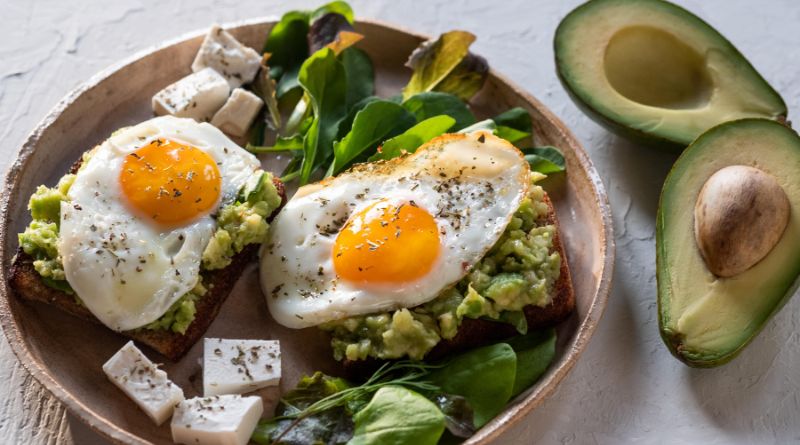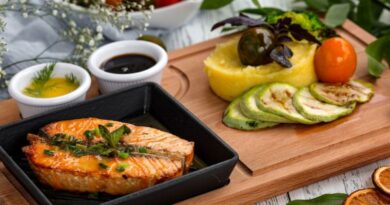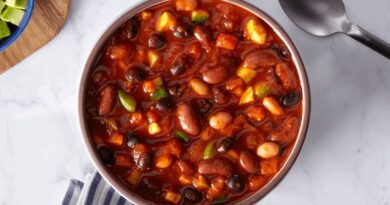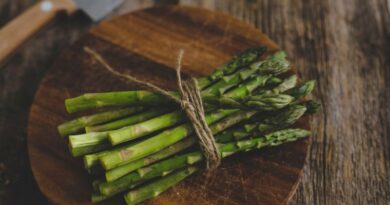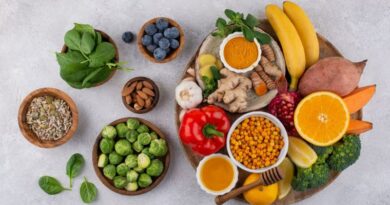In the quest for a well-balanced and nutrient-rich diet, iron plays a crucial role in maintaining optimal health. While beef is often hailed as a primary source of this essential mineral, there exists a plethora of alternative food options that not only match but surpass the iron content found in traditional meat sources. This blog explores seven nutrient-packed foods that prove you don’t need to rely solely on beef to meet your iron requirements. From plant-based powerhouses to unconventional protein sources, we delve into a diverse range of options that cater to various dietary preferences. Whether you’re a vegetarian, vegan, or simply looking to broaden your culinary horizons, these iron-rich foods offer a tasty and nutritious alternative to the conventional beef-centric approach. Join us on this exploration of iron-rich delights that will not only satisfy your taste buds but also contribute significantly to your overall well-being.
Foods That Offer More Than Beef
Discover a world of nutritional abundance beyond beef with our curated list of iron-rich foods. From nutrient-dense leafy greens to protein-packed legumes, these alternatives not only match but surpass the iron content found in beef. Explore a diverse range of delicious options to elevate your iron intake and foster a well-balanced, nutrient-rich diet.
Lentils

Lentils, the tiny legumes that pack a powerful nutritional punch, are a versatile and hearty addition to any diet. These lens-shaped seeds come in various colors, including brown, green, red, and black, each offering unique flavors and textures. Rich in iron, lentils serve as an excellent alternative to beef, making them an ideal choice for individuals seeking plant-based or vegetarian sources of this essential mineral. Beyond their iron content, lentils are also a superb source of protein, fiber, and an array of vitamins and minerals. Their versatility extends to culinary applications, seamlessly fitting into soups, stews, salads, and side dishes. With a quick cooking time and an ability to absorb flavors, lentils not only contribute to a well-balanced and nutritious diet but also add depth and substance to a wide range of dishes, making them a staple for those embracing both health and culinary diversity.
Also Read- 9 One-Pot Dinner Recipes for Easier Mealtime
Spinach

Spinach, a leafy green powerhouse, stands out as a nutritional marvel with a host of health benefits. Packed with iron, this vibrant vegetable offers a substantial alternative to beef, particularly for those pursuing plant-based or vegetarian diets. Beyond its iron content, spinach is a nutrient-rich source of vitamins A, C, and K, as well as folate and manganese. Its low-calorie profile makes it a favorite for those aiming to maintain a healthy weight. Additionally, spinach contains antioxidants that may contribute to overall well-being and the prevention of chronic diseases. Versatile in the kitchen, spinach can be enjoyed raw in salads, sautéed as a side dish, or incorporated into various recipes, lending its mild and slightly sweet flavor to a diverse range of culinary creations. With its nutritional density and culinary adaptability, spinach unquestionably earns its place as a nutritional cornerstone in any well-rounded diet.
Tofu

Tofu, a staple in many plant-based and vegetarian diets, is a versatile and nutritious protein source derived from soybeans. With a mild flavor and a unique texture that adapts to various cooking methods, tofu has become a go-to ingredient for those seeking alternatives to meat, including beef. Not only is tofu rich in iron, making it a valuable component for meeting dietary needs, but it also boasts a complete source of protein, providing all essential amino acids. Additionally, tofu is a good source of calcium, manganese, and other essential minerals. Its ability to absorb flavors makes it an excellent addition to savory dishes, stir-fries, soups, and even desserts. Tofu’s versatility and nutritional profile make it a standout choice for those looking to diversify their protein intake while embracing a health-conscious and sustainable approach to their diet.
Quinoa

Quinoa, often hailed as a superfood, is a nutrient-dense grain that has gained widespread popularity for its exceptional health benefits. Originating from South America, quinoa stands out as a complete protein, containing all nine essential amino acids that the human body cannot produce on its own. This makes it an excellent alternative to beef for individuals looking to enhance their protein intake, particularly in vegetarian and vegan diets. Beyond its protein content, quinoa is a rich source of essential minerals such as iron, magnesium, and phosphorus. Its gluten-free nature adds to its appeal, making it suitable for those with gluten sensitivities. With a nutty flavor and a slightly chewy texture, quinoa can be incorporated into a myriad of dishes, from salads and pilafs to breakfast bowls and desserts, making it a versatile and delicious addition to a balanced and wholesome diet.
Chickpeas
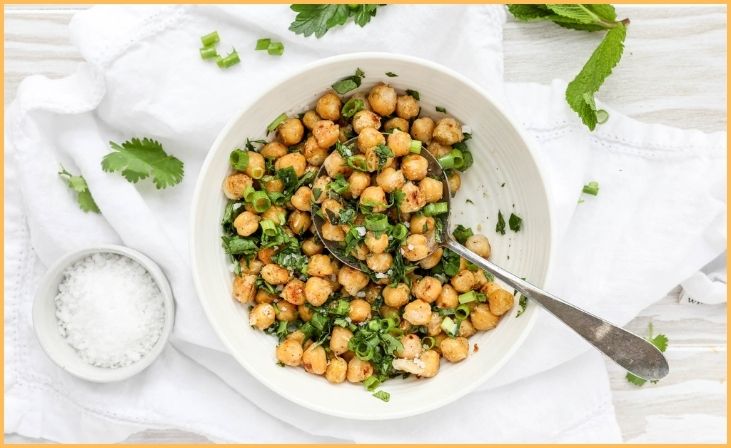
Chickpeas, also known as garbanzo beans, emerge as a nutritional powerhouse in the realm of plant-based proteins. These beige, round legumes are not only a delicious addition to various dishes but also offer a robust alternative to beef, especially for those following vegetarian or vegan lifestyles. Rich in iron, chickpeas contribute significantly to meeting daily dietary needs, providing a plant-derived source of this essential mineral. Moreover, chickpeas are an excellent source of protein, fiber, vitamins, and minerals, promoting heart health, digestion, and overall well-being. From hummus to curries and salads, chickpeas showcase their culinary versatility, absorbing the flavors of the dishes they inhabit. Their unique combination of texture and nutritional content makes them a go-to ingredient for creating wholesome and satisfying meals that cater to both taste and health-conscious preferences.
Pumpkin Seeds

Pumpkin seeds, often referred to as pepitas, are small green powerhouses of nutrition that offer a range of health benefits. These seeds, extracted from the inner cavity of pumpkins, are a rich source of iron, making them an excellent alternative to beef for those seeking plant-based options. In addition to iron, pumpkin seeds are loaded with essential nutrients such as magnesium, zinc, and copper, contributing to bone health, immune function, and overall well-being. The seeds also contain antioxidants and healthy fats, promoting heart health and reducing inflammation. With a crunchy texture and a subtly nutty flavor, pumpkin seeds make a delicious addition to salads, yogurt, granola, and baked goods. Whether enjoyed as a snack or incorporated into various dishes, pumpkin seeds offer a convenient and tasty way to enhance the nutritional profile of your diet while satisfying both hunger and health-conscious goals.
Fortified Breakfast Cereals
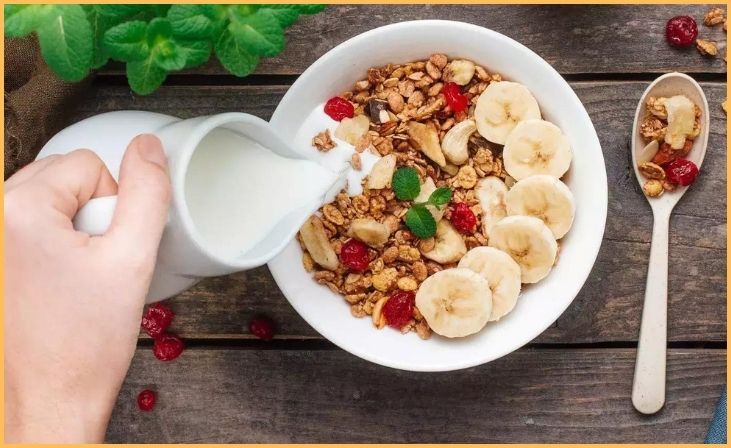
Fortified breakfast cereals have emerged as a convenient and accessible way to enhance nutritional intake, providing a wealth of essential nutrients, including iron. Often fortified with vitamins and minerals, including folic acid and various B vitamins, these cereals are designed to offer a balanced and wholesome start to the day. For individuals seeking an alternative to beef as a source of iron, fortified breakfast cereals present a viable option. The iron content in these cereals contributes to overall energy levels and supports cognitive function. Furthermore, these cereals cater to various dietary preferences, including vegetarian and vegan lifestyles. The convenience of a quick and nutritious breakfast makes fortified cereals a popular choice, offering a tasty and practical solution for those looking to meet their daily iron needs while enjoying a delicious morning meal.
For More- 7 Benefits of Drinking Lemon Water
Conclusion
In the realm of dietary choices, the quest for iron-rich alternatives to beef has unveiled a diverse array of nutrient-packed options. From the plant-based power of spinach and quinoa to the protein prowess of tofu and chickpeas, our exploration of foods surpassing the iron content found in beef demonstrates the richness and versatility of alternative sources. Whether you’re embracing a vegetarian or vegan lifestyle or simply looking to diversify your diet, these seven foods present flavorful and nutritious choices to bolster your iron intake. As we conclude our journey through these iron-rich delights, it’s evident that a well-balanced diet can be achieved through a variety of culinary choices that cater to both taste and nutritional needs.
FAQs
We considered factors such as iron content, nutritional value, versatility, and suitability for various dietary preferences to compile a diverse list of iron-rich foods.
Absolutely. Many of the featured foods, such as quinoa, tofu, and chickpeas, are plant-based and provide excellent alternatives to beef for individuals following vegetarian or vegan diets.
While these foods are rich in iron, it’s crucial to maintain a balanced diet. Consult with a healthcare professional to ensure you’re meeting your specific nutritional needs.

